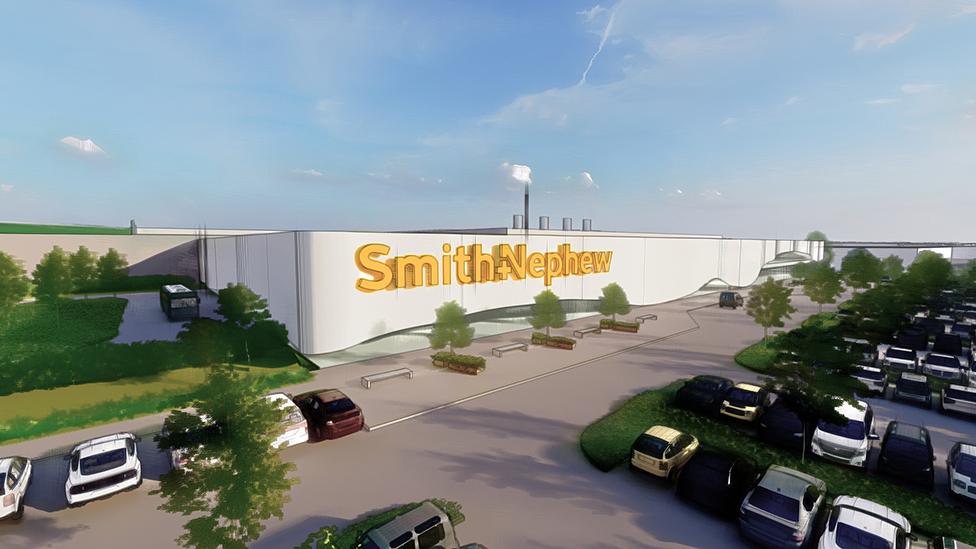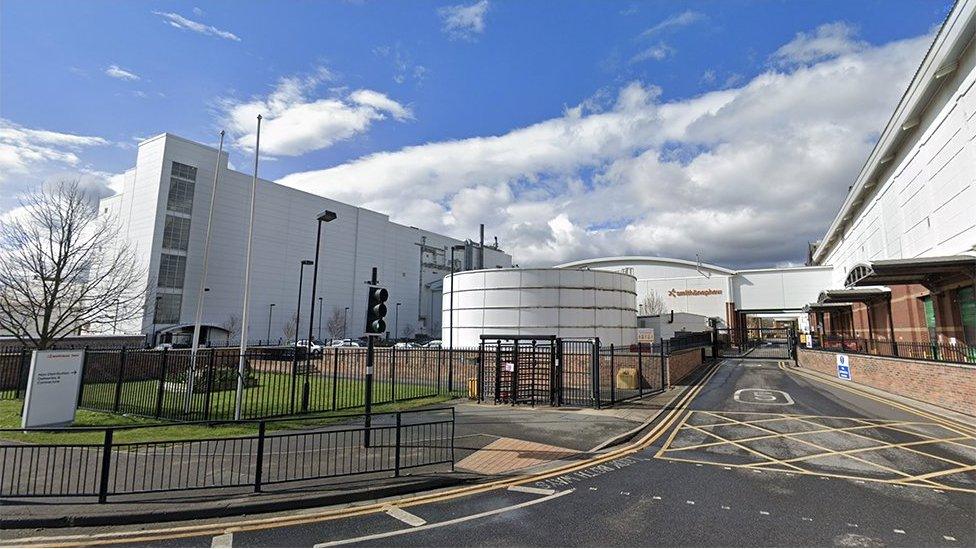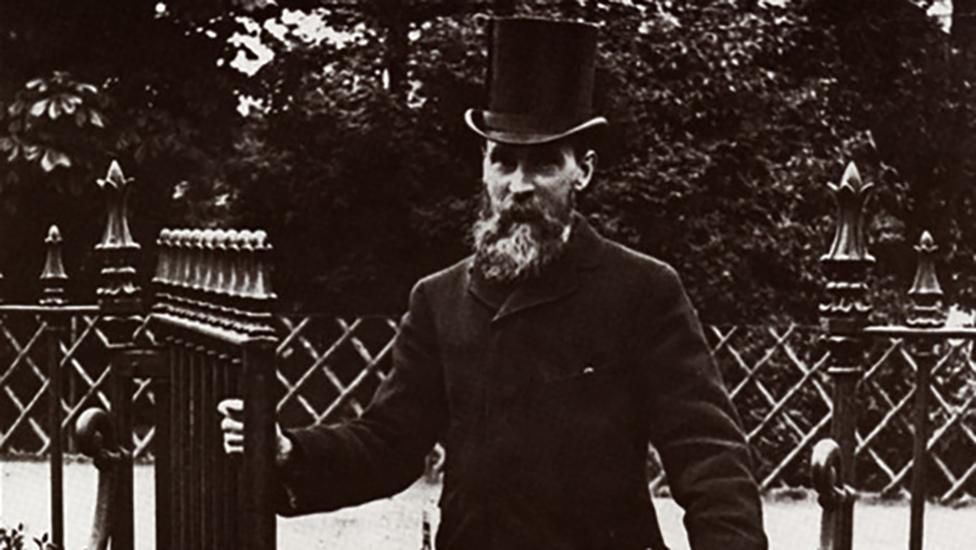Smith & Nephew: Famous Hull firm to move from historic home
- Published

The new site will be located at Melton in East Yorkshire 8 miles (13km) from the current Hull factory
A world-renowned company is to leave its home in Hull after more than 160 years based in the city.
Smith & Nephew is to relocate to a new £80m site in Melton, eight miles (13km) from its current factory.
The medical equipment maker employs around 800 people and has been based in Hull since it was was founded in 1856.
City Labour MP Emma Hardy said she was disappointed at the firm's decision to move its base, but understood the reasons behind the relocation.
Ms Hardy said: "Hull was the birthplace of Smith & Nephew. It's where the company started. It has all its history, it has all its heritage there on this site in Hull.
"But, I understand they wanted 23 acres and, of course, you can't find 23 acres within the boundary of Hull, it's simply not there."
She added: "My focus right now is going to be making sure everyone keeps their jobs when they open this new site."

The company currently has a large manufacturing base on Daltry Street, just outside Hull city centre
Smith & Nephew said the new East Yorkshire facility would create a "world-class research and development, manufacturing and flexible office environment" which would "generate more than $10bn (£8bn) of sales in its first ten years of operation".
Part of the investment is supported by a government grant.
Lord Kamall, Minister for Innovation, said: "Smith & Nephew's new R&D base will ensure the UK remains at the forefront of life sciences and innovative research, levelling up the health of our nation, tackling disparities and saving lives."

Analysis
By Caroline Bilton, Social Affairs Correspondent, BBC Look North

Smith and Nephew was founded in 1856 by Thomas James Smith
It's one of the first companies you notice as you enter Hull - the huge orange logo of Smith & Nephew dominating the skyline as it has done for decades.
The company is part of Hull's history. It was founded here in 1856 by Thomas James Smith who started business as a dispensing chemist.
From those humble beginnings, the company has grown into a global brand and it now has offices in countries around the world.
Smith & Nephew is one of Hull's success stories. Its foundations were built on the work and expertise of generations of Hull families.
For the firm to no longer have a presence here will be a huge loss to the city.

Mike Ross, Liberal Democrat leader of Hull City Council, said he had met bosses at Smith & Nephew who "made clear there was not sufficient suitable land within the city boundary that could be made available at the pace their plans required".
Mr Ross said although he would have preferred the company had remained within the city, he was "optimistic the new location - just a few minutes up the road - means our residents will be able to keep their jobs. Protecting jobs has been the council's priority and we will continue to work with the company and local MPs to ensure this is the case".
He added: "The company has also committed to working with us to ensure its current site plays a key role in meeting the city's future employment needs, and this will be central to the redevelopment of the wider English Street area."
'Sense of loyalty'
However, Daren Hale, St Andrews and Docklands ward councillor and former Labour leader of Hull City Council, said the move was "an absolute betrayal of the city and its people that made them the firm they are".
He added: "I feel sorry for the people that live local in the ward I represent where this is based and do not drive. Thankfully, Hull has other businesses like Reckitts and Arco that still have a sense of loyalty and a moral compass and have reinvested heavily in Hull."
Smith & Nephew supplied field dressings in both world wars and was once famous for producing the Elastoplast range of plasters and bandages.
However, the brand was sold to a German company in 2000 as Smith & Nephew chose to focus on producing medical equipment, such as artificial joints and specialist wound dressings.
On its website, the firm said it had invested around £50m at its factory in Hull since 2011, including £3m on flood defences after the site was flooded in 2013.

Follow BBC East Yorkshire and Lincolnshire on Facebook, external, Twitter, external, and Instagram, external. Send your story ideas to yorkslincs.news@bbc.co.uk, external.